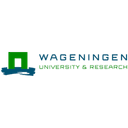This course is part of Water & Drainage in Agriculture.
This course from Wageningen University, the world's leading agricultural institution, provides a comprehensive understanding of agricultural water management. It uniquely combines technical and social perspectives, recognizing that successful water technologies require social and institutional agreement. The course addresses global challenges like climate change, urbanization, and food security, teaching students to optimize water governance and technologies. Through practical modules and real-world case studies from Morocco, participants learn about crop water requirements, irrigation systems, water distribution, and governance frameworks. The course emphasizes sustainable solutions that consider multiple stakeholders, spatial levels, and water quality/quantity requirements.
4.3
(15 ratings)
5,695 already enrolled
Instructors:
English
English
What you'll learn
Calculate and analyze irrigation water requirements for different crops
Develop sustainable water management strategies considering both technical and social factors
Understand the relationship between water technologies, management, and governance
Evaluate water allocation and distribution systems for agricultural use
Analyze institutional and infrastructural designs for sustainable water management
Skills you'll gain
This course includes:
PreRecorded video
Graded assignments, Exams
Access on Mobile, Tablet, Desktop
Limited Access access
Shareable certificate
Closed caption
Get a Completion Certificate
Share your certificate with prospective employers and your professional network on LinkedIn.
Created by
Provided by

Top companies offer this course to their employees
Top companies provide this course to enhance their employees' skills, ensuring they excel in handling complex projects and drive organizational success.





There are 5 modules in this course
The course provides a comprehensive exploration of agricultural water management, combining technical expertise with social considerations. Students learn about global water challenges, crop water requirements, irrigation technologies, and water governance. The curriculum covers practical aspects like field practices and water distribution systems, as well as institutional perspectives including rural development models. A case study from Morocco's Tadla irrigation scheme offers hands-on application of concepts. The course emphasizes sustainable solutions that balance multiple stakeholders' needs across different spatial levels.
Addressing Global Water Issues
Module 1
Water Demand for Crop Production
Module 2
Agricultural Water Distribution & Technology
Module 3
Agricultural Water Management & Governance
Module 4
Agricultural Water Management in Morocco
Module 5
Fee Structure
Individual course purchase is not available - to enroll in this course with a certificate, you need to purchase the complete Professional Certificate Course. For enrollment and detailed fee structure, visit the following: Water & Drainage in Agriculture
Payment options
Financial Aid
Instructors

4 Courses
Expert in Agricultural Water Management and Irrigation Systems
Gerlo Borghuis MSc serves as a Lecturer and Research Assistant in the Water Resources Management group at Wageningen University & Research since 2018. After completing his Master's degree at Wageningen University, where his thesis research focused on drip irrigation adoption by farmers in the Rio Dulce Irrigation System in Santiago del Estero, Argentina, he has developed expertise in agricultural water management and irrigation systems. He teaches in both bachelor's and master's programs within the International Land and Water Management curriculum, focusing on irrigation, agricultural management, and socio-technical approaches to water management. His work emphasizes the practical aspects of water resource management, particularly investigating water productivity and the implementation of various irrigation technologies. Through his involvement in the Water Productivity Improvement in Practice (Water-PIP) project and his teaching in MOOCs including "Agricultural Water Management" and "Drainage in Agriculture," he contributes to understanding how technological advancements can improve agricultural water management. His approach combines technical expertise with consideration of social factors, reflecting Wageningen University's unique socio-technical perspective on water management challenges.

3 Courses
Leading Expert in Water Resources Management and Environmental Economics
Dr. Petra Hellegers serves as Professor and Chair of the Water Resources Management group at Wageningen University & Research, where she leads a dynamic team of approximately 20 staff members and more than 30 PhD candidates. Her expertise spans environmental economics, water allocation issues, and irrigation water management, with extensive international experience across multiple continents including Egypt, India, Morocco, Mozambique, Ukraine, and Yemen. She has established herself as a prominent figure in analyzing water allocation decisions and studying economic instruments in irrigation water management. Her leadership extends to various significant projects, including the Water Productivity Improvement in Practice (Water-PIP) initiative, which aims to increase crop water productivity in DGIS partner countries in Africa and the Near East and Northern Africa region. The project combines spatial land surface data with socio-economic analysis to strengthen decision-making processes in water management.
Testimonials
Testimonials and success stories are a testament to the quality of this program and its impact on your career and learning journey. Be the first to help others make an informed decision by sharing your review of the course.
Frequently asked questions
Below are some of the most commonly asked questions about this course. We aim to provide clear and concise answers to help you better understand the course content, structure, and any other relevant information. If you have any additional questions or if your question is not listed here, please don't hesitate to reach out to our support team for further assistance.



